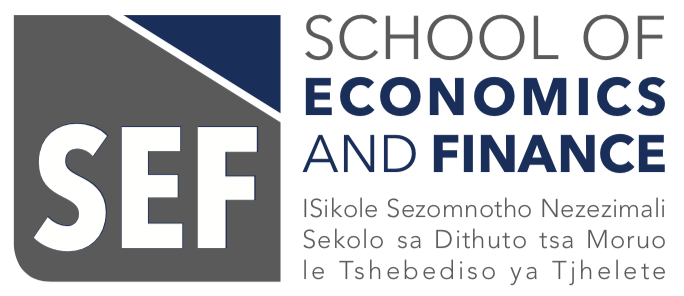-
The African Micro-Economic Research Umbrella (AMERU)
The African Microeconomic Research Umbrella brings together South African and African researchers to conduct rigorous quantitative research on African microeconomic issues, specifically on firms and labour markets. The programme aims to produce rigorous data-driven research that is relevant for policy makers; build networks between South African, African and international researchers working on Africa; and develop research capacity for the analysis of microeconomic data.
-
Wits Fintech Hub

In partnership with the Liberty Group, the Wits Fintech Hub will seek to provide cutting-edge scholarship, the fostering of innovative problem-solving approaches and the enablement of space for intellectual innovations, interactions, and partnerships between and amongst researchers and entrepreneurs.
The hub is set up as a start-up incubator scheme where individuals assemble to solve real-world problems with a focus on fostering an entrepreneurial spirit. The hub will act as a proving ground, developing research on start-ups and creating an entrepreneur-enabling environment founded on creative and intellectual diversity.
-
The Institutions and Political Economy Group (IPEG)
The Institutions and Political Economy Group (IPEG) promotes the study of the relationship among institutions, organisations and markets through the simple principles of economic reasoning. It applies the insights generated by institutional, organisational, political and public economics to issues pertaining to economic performance through time.
-
EPOG-Unesco chair
Wits University is a South African partner to the EPOG-Unesco chair. The chair aims to develop worldclass, multidisciplinary and inclusive training and research on ecological, socio-economic and digital transitions, with a particular emphasis on sustainability and the link between science and society.
In particular, the aim is to train experts capable of (i) designing and effectively managing transition processes towards sustainable socio-economic models, but also (ii) establishing a constructive dialogue between experts from different continents as well as between experts, public decision-makers and citizens.
The chair develops the original concept of “global transition”, conceived both as- a geographically situated process involving all territories and continents in a multi-scale perspective (from local to global), and
- a systemic process that makes it possible to rethink economic and social policies — and in particular, those related to social inclusion — in coherence with the perspective of the ecological transition. This concept will be developed in order to meet the challenges posed by inequalities, ecological disruptions, but also the fragility of our societies, evident since the coronavirus crisis.
Click here to link to the site


